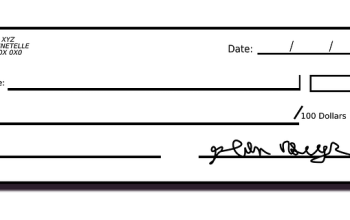Vehicle history reports are crucial for pre-owned car buyers, providing insights into maintenance, ownership, and accident history. Online platforms facilitate deception by hiding salvage titles, requiring buyer vigilance. To avoid fraud, compare mileage, inspect the vehicle, verify lemon law titles, and cross-reference service records. Every state maintains detailed registration histories, helping to identify red flags like odometer rollback or undisclosed accidents. Using VINs and platforms like NMVTIS, buyers can access title history and confirm ownership legitimacy. Transparency is key to safeguarding investments in a complex used car market.
In the intricate landscape of used car purchasing, where every detail matters, vehicle history reports stand as a beacon of clarity. As recent trends reveal an alarming rise in cars with salvage titles being sold without proper disclosure, buyers must arm themselves with knowledge. This comprehensive guide delves into the world of auto title verification, empowering you to navigate the market with confidence. By understanding how to interpret vehicle registration records, check for odometer fraud, and identify lemon law titles, you can safeguard your investment from hidden problems that might otherwise surface as shiny facades.
- Understanding Vehicle History Reports: A Buyer's Guide
- The Rising Trend of Undisclosed Salvage Titles
- How to Check for Odometer Fraud and Lemon Law Titles
- Dive into Auto Title Records: Protect Your Investment
- Essential Steps to Verify a Car's True Ownership History
- Ensuring Transparency: Avoiding Hidden Problems in Used Cars
Understanding Vehicle History Reports: A Buyer's Guide

Vehicle history reports are detailed documents that provide insights into a car’s past, offering buyers a glimpse into its maintenance records, ownership history, and any reported accidents or damages. This information is crucial for making informed decisions, especially when purchasing used vehicles. These reports act as a buyer’s compass, helping them navigate the complexities of the pre-owned market.
A comprehensive vehicle history report includes data such as odometer readings, service history, accident records, and title details. It may also indicate if a car has been deemed a “total loss” or had its title branded as salvage due to significant damage. By accessing these reports, consumers can uncover potential red flags and avoid purchasing vehicles with undisclosed issues.
The Rising Trend of Undisclosed Salvage Titles

In recent years, there has been an alarming trend emerging within the used car market. Car dealers and private sellers are increasingly evading essential transparency by omitting crucial information about vehicles with salvage titles. These titles, often obtained after a vehicle has sustained significant damage or been involved in a total loss event, can mask extensive repairs, alterations to safety features, or even odometer rollback. Such undisclosed history not only deceives unsuspecting buyers but also poses potential risks and financial burdens they may later discover.
The rise of online sales platforms has facilitated this deceptive practice, as buyers might not physically inspect the vehicle before purchasing. Moreover, some unscrupulous dealers use clever marketing strategies to hide the salvage title, focusing instead on accentuating a car’s appealing aesthetics. This trend underscores the growing need for buyer vigilance and the importance of utilizing comprehensive auto history reports to safeguard investments.
How to Check for Odometer Fraud and Lemon Law Titles

To check for odometer fraud, start by obtaining a vehicle history report from reputable sources. These reports provide detailed information about the car’s past, including mileage. Compare the reported mileage with what is displayed on the odometer. A significant discrepancy could indicate tampering or fraud. Additionally, look out for signs of repainting or cosmetic repairs, as these might mask damage or accidents that affect the vehicle’s structural integrity.
When it comes to lemon law titles, research varies by region, but many states have databases where you can verify if a car has been deemed a “lemon.” These titles indicate that the vehicle has had significant issues and may have been subject to legal actions. Check with your local motor vehicle department or consumer protection agency for specific guidelines on how to access these records. Verify the seller’s claims about repairs and maintenance, cross-referencing them with service records if possible.
Dive into Auto Title Records: Protect Your Investment

Dive into auto title records to uncover a vehicle’s true history, which is crucial for protecting your investment. Every state maintains detailed records of vehicle registration and titles, making it accessible to buyers to verify ownership, accident history, and any previous damage. By examining these records, you can spot potential red flags like odometer rollback, undisclosed accidents, or even theft.
These insights are particularly vital when purchasing a used car with a salvage title. While such vehicles may be cheaper, they often come with hidden repairs and unforeseen issues. An accurate auto title guide allows buyers to navigate this complex landscape, ensuring they aren’t taken advantage of and making informed decisions.
Essential Steps to Verify a Car's True Ownership History

To ensure you’re purchasing a car with a clean and transparent ownership history, follow these essential steps. First, obtain the vehicle identification number (VIN) from the car’s registration or by checking its label on the driver’s side door frame. Then, use online resources like the National Motor Vehicle Title Information System (NMVTIS) to access detailed records of the car’s title history. This system provides information on any accidents, damage, odometer rollback, and whether the vehicle has a salvage or lemon law title.
Additionally, cross-reference the current owner’s information with previous owners listed in the report. Verify that all sales and transfers are legitimate and match the timeline of ownership events noted in the report. If discrepancies arise, further investigation is warranted. Also, request a vehicle history report from reliable third-party services for a more comprehensive overview, including maintenance records and accident details not always available through official channels.
Ensuring Transparency: Avoiding Hidden Problems in Used Cars

In the complex landscape of used car purchases, transparency is key to protecting your investment. One of the most effective ways to ensure this is by thoroughly examining a vehicle’s history report, which can reveal hidden problems that might not be immediately apparent. Many buyers are caught off guard when they discover a car they thought was in excellent condition has actually sustained significant damage or been involved in prior accidents.
By checking vehicle registration records and obtaining an accurate auto title guide, prospective buyers can gain valuable insights into a car’s past. This includes verifying odometer readings to check for potential fraud, which is a common practice to inflate a vehicle’s mileage. Moreover, examining the title history can alert buyers to cars with salvage titles, indicating they were declared total losses after accidents. While these vehicles may be repaired and appear attractive to budget-conscious buyers, they could still harbor structural issues or have been inadequately rebuilt, posing potential safety risks.
In the complex landscape of used car purchases, vehicle history reports are no longer just helpful—they’re indispensable. By equipping yourself with knowledge on checking odometers, verifying titles, and delving into auto title records, you can navigate this market with confidence. Remember that transparency in a car’s history is key to protecting your investment and avoiding hidden problems. So, take the time to check, double-check, and verify—it could save you a significant headache down the road.



